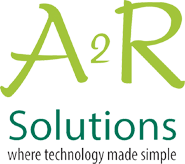Understanding ERP Software: A Comprehensive Guide to ERP Systems and Solutions
Introduction
In today’s fast-paced business landscape, efficient management of resources and data is crucial for success. This is where Enterprise Resource Planning (ERP) software comes into play. In this article, we will delve into the world of ERP software, exploring what it is, how it works, and the benefits it offers to businesses of all sizes.
So, let’s get started and unravel the mysteries of ERP systems and solutions!
What is ERP?
At its core, ERP is a suite of integrated applications that facilitate seamless management of key business areas such as finance, human resources, supply chain, inventory, sales, and customer relationship management (CRM).
By consolidating data and automating processes, ERP software enables efficient communication and collaboration across different departments, fostering data-driven decision-making.
The Components of ERP Software
Core Modules
ERP solutions typically consist of core modules that cover essential business functions. These modules include:
- Financial Management: Handles accounting, budgeting, and financial reporting. It tracks expenses, revenue, and manages financial transactions.
- Human Resources Management: Manages employee data, payroll, recruitment, performance evaluation, and training.
- Supply Chain Management: Oversees the entire supply chain, from procurement to delivery, ensuring smooth operations and inventory management.
- Manufacturing Management: Optimizes manufacturing processes, production planning, and resource allocation.
- Customer Relationship Management (CRM): Enhances customer interactions, sales, and marketing efforts, leading to improved customer satisfaction and loyalty.
Additional Modules
Besides the core modules, ERP systems offer additional modules that cater to specific industries and unique business needs. These can include:
- Project Management: Enables efficient project planning, task allocation, and resource tracking.
- Quality Management: Focuses on quality control and compliance with industry standards.
- Business Intelligence and Analytics: Provides data-driven insights and predictive analysis for informed decision-making.
- E-commerce Integration: Facilitates seamless online sales and integrates web-based transactions with the ERP system.
How Does ERP Work?
ERP software operates on a centralized database, where all relevant information from different departments is stored.
This centralization ensures that data remains consistent, accurate, and up-to-date across the organization. Users from various departments can access the data they need in real-time, promoting collaboration and eliminating data silos.
The ERP system uses a modular architecture, allowing businesses to choose the modules that suit their requirements. The integration of these modules enables smooth data flow and automated workflows, streamlining operations and reducing manual intervention.
The Advantages of Implementing an ERP System
Implementing an ERP system offers numerous benefits for businesses seeking enhanced efficiency and productivity. Let’s explore some of the key advantages:
Streamlined Business Processes
ERP software streamlines business processes by automating repetitive tasks and eliminating manual errors. This leads to increased operational efficiency and reduced process cycle times.
Enhanced Data Accessibility
With a centralized database, ERP systems ensure that data is readily accessible to authorized users whenever they need it. This accessibility empowers employees to make well-informed decisions in real-time.
Improved Decision-Making
Data-driven decision-making becomes possible as ERP software provides real-time insights into business performance. This enables managers to identify trends, spot opportunities, and address challenges promptly.
Increased Collaboration and Communication
ERP systems break down communication barriers between departments by providing a unified platform. Teams can collaborate seamlessly and share information effortlessly, leading to better teamwork and project outcomes.
Scalability and Flexibility
As businesses grow, their needs change. ERP solutions are designed to scale alongside the organization and accommodate evolving requirements. They offer flexibility to adapt to industry changes and new business challenges.
Choosing the Right ERP Solution for Your Business
Selecting the appropriate ERP system is a critical decision for any business. Here are some factors to consider when making your choice:
- Business Requirements: Assess your business needs and prioritize features that align with your goals.
- Vendor Credibility: Research the reputation and experience of ERP vendors to ensure reliability.
- Scalability: Choose a solution that can grow with your business and adapt to future needs.
- User-Friendly Interface: A simple and intuitive interface ensures user adoption and reduces training time.
- Integration Capabilities: Ensure the ERP system can seamlessly integrate with your existing software.
Implementing an ERP System: Best Practices and Challenges
Implementing an ERP system is a significant undertaking that requires careful planning and execution. Here are some best practices to follow and challenges to be aware of during the process:
Assessing Your Business Needs
Conduct a thorough analysis of your business processes to identify pain points and areas for improvement.
Planning the Implementation Process
Create a detailed roadmap for the implementation, setting clear objectives and timelines.
Data Migration and Integration
Migrating existing data to the new ERP system and ensuring smooth integration with other applications is crucial.
Training and Change Management
Train your employees to use the ERP software effectively and manage the organizational change that comes with its implementation.
Continuous Support and Upgrades
Maintain regular support and updates to keep your ERP system running optimally and secure.
Overcoming Implementation Challenges
Challenges may arise during the implementation process, such as resistance to change or data migration issues. Anticipate these challenges and devise strategies to address them effectively.
Top Industries Leveraging ERP Solutions
ERP solutions cater to various industries, providing tailored solutions to meet industry-specific requirements. Some of the top industries leveraging ERP software include:
Manufacturing
Manufacturing companies use ERP to streamline production, manage inventory, and optimize resource allocation.
Retail and E-Commerce
Retailers benefit from ERP systems for inventory management, supply chain visibility, and customer relationship management.
Healthcare
In the healthcare sector, ERP software helps manage patient data, medical billing, and compliance with regulatory standards.
Finance and Accounting
Financial institutions utilize ERP systems for precise accounting, financial reporting, and risk management.
Human Resources
HR departments use ERP solutions for employee management, payroll processing, and performance evaluation.
The Future of ERP Software: Trends to Watch
The world of ERP is continuously evolving, and several trends are shaping its future:
Artificial Intelligence Integration
AI integration in ERP systems will enable intelligent automation, predictive analytics, and personalized user experiences.
Cloud-Based ERP Systems
Cloud-based ERP solutions will gain popularity due to their scalability, accessibility, and cost-effectiveness.
Mobility and Remote Access
ERP software will become more mobile-friendly, allowing users to access critical information from anywhere.
Internet of Things (IoT) in ERP
IoT integration will enable real-time data collection from connected devices, optimizing processes and resource management.
Enhanced Data Security Measures
As ERP systems store sensitive business data, robust security measures will be vital to safeguard against cyber threats.
The Cost of ERP Implementation – ERP Software
Implementing an ERP system involves various costs, including:
Initial Investment
The initial investment includes software licensing, hardware, and consultant fees for system setup.
Ongoing Maintenance and Support
Businesses need to budget for continuous support, system updates, and user training.
Return on Investment (ROI)
Although ERP implementation requires a significant investment, the long-term benefits in efficiency and productivity often justify the cost.
Common ERP Mistakes to Avoid
Avoid these common pitfalls during ERP implementation:
Insufficient Research and Planning
Rushing into ERP implementation without proper research can lead to costly mistakes.
Underestimating Data Migration Complexity
Data migration can be complex and time-consuming, so allocate sufficient resources and time for this process.
Overlooking Change Management
Ensure that employees are adequately prepared for the changes brought about by ERP implementation.
Ignoring Employee Feedback
Engage employees in the decision-making process and address their concerns and suggestions.
Failure to Regularly Update the System
Neglecting system updates can lead to security vulnerabilities and reduced system performance.
Conclusion
ERP software has revolutionized the way businesses operate, offering a holistic approach to managing resources, processes, and data.
Its ability to streamline operations, provide real-time insights, and promote collaboration makes it an indispensable tool for modern enterprises.
By investing in the right ERP system and following best practices during implementation, businesses can unlock their full potential and gain a competitive edge in today’s dynamic marketplace.
A2RSolutions is the best accounting software companies in Dubai, specializing in providing top-quality accounting software, including Intuit Quickbooks Online in Dubai.
We offer comprehensive online accounting software for small business Dubai, along with sage 300 erp in Dubai. Simplify your business operations with our cutting-edge software tailored for companies in Dubai.
We provide sage 50 accounting software Dubai at best pricing.



